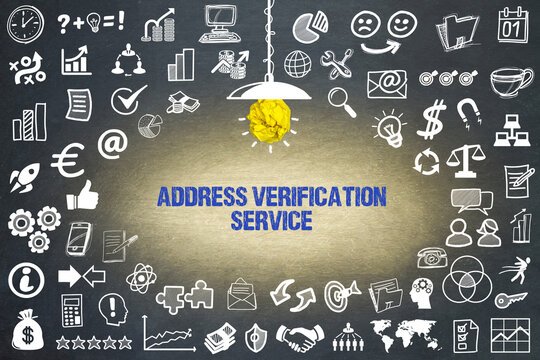In present times, the way people are browsing for things online is changing because of the availability of cutting-edge technologies. Given the prevalence of digital trends and their acceptance, customer experience has become more imperative than ever for a company’s market success. The economy loses $1.6 trillion every year from abandoned shopping carts that stem from confusing checkout procedures. Misplaced deliveries are another source of concern for businesses that are compelled to pay extra shipping costs owing to a lack of appropriate address verification measures.
What Is Address Verification and How Does It Work?
An Address Verification Solution (AVS) is an authentication software that is built for verifying the legitimacy of the addresses provided by customers as part of finalizing their transactions. It warrants the input of correct and trustworthy data into the system that hinges on an automated mechanism for validating client address information. It lowers the likelihood of customers providing incomplete or wrong information, allowing e-commerce firms to confidently provide the ordered items.
The process of verifying an address can be broken down into three simple steps:
- Upload a photo of yourself and proof of your identity.
While holding the identity document, the system invites the user to add a photo. The photo on the ID is compared to the user’s facial identification. - Submit a Secondary Identification Card
An additional document including information about the user’s residential/business address must be uploaded next. These documents are used to double-check the accuracy of address information. - Validation and Generation of Results
The address extricated from the records is examined through a progression of checks. The confirmation results are imparted to the client and the customer in their administrative center utilizing an API call.
What Is Verified During the Address Verification Process?
The address verification solution extracts important information from the user’s identity papers. The following are some document-related tests that are carried out during the address validation process:
- Is the complete name of the user mentioned in the document?
- Is the document photocopied, forged, or otherwise tampered with?
- On the document, the complete address should be displayed in a recognised way.
- There are no crumpled edges on the document, and it is entirely viewable.
Eliminate Friction with an Address Verification Solution
An address verification solution assists with refining client information. Such an arrangement permits the automatic identification of address-related errors, approval of a location’s deliverability, and access to metadata to gather consumer insights. Other advantages include:
- Augmented Checkout Experience: On the basis of Machine Learning, Address verification Solution automatically suggests addresses to a potential consumer reducing the time it takes for a customer to complete the checkout process eventually increasing the conversion rates of a business.
- Reduced shipping overheads: Validate client locations to guarantee orders and mail are dispatched to the right source without fail. Sending undeliverable orders accumulates postage costs, redelivering a request significantly increases postage costs. Catch legitimate addresses to diminish your postage costs and kill deliverability blunders.
- Enhanced information: Deduplicate each address that goes into CRM, automating data set upkeep. Improve comprehension by automatically gathering data related to dispatch and deliverability limitations.
- Normalize worldwide data: Since addresses are territorially designed, it tends to be a test to consolidate worldwide informational indexes. Checked addresses contain metadata that permit you to reliably reference areas all throughout the globe.
What steps does Address Verification Solution take to combat chargeback fraud?
Fraudsters frequently make an online purchase and then file a chargeback saying that they did not receive the merchandise after a month or two of use. The lack of a sufficient procedure to ensure that the merchandise was delivered to the correct address makes this a nuisance. An address is crucial in determining the level of risk associated with a digital transaction. Empty residences are used by bad actors as drop-off places for their fraudulent operations, which cost businesses roughly $20 billion each year.
Address verification is a necessity for satisfying KYC/AML regulations in industries like e-commerce and gaming, among others. Businesses may serve real consumers, detect and eliminate hazards, and conduct commercial operations without fear of fraud with a purpose-built address verification system. Enterprises may also use AVS to improve their ID verification methods for safe client onboarding.
Around 19 percent of unsuccessful deliveries are caused by incorrect address information, costing firms a significant amount of money. A real-time address verification solution can collect the necessary information during account opens, ensuring on-time delivery and increasing client conversion prospects.
The use of an AVS improves data quality, which decreases unsuccessful deliveries and the time and effort required by customer service teams to resolve address-related complaints. This allows a company to concentrate on increasing revenue and improving its brand reputation.
Conclusion
Chargebacks, account takeover, and other fake exercises are expanding over the long haul. It is significant for all organizations to battle these wrongdoings, nonetheless, fraudsters have grown more complex systems for their malignant expectations. Performing traditional identity confirmation checks isn’t sufficient anymore. Address verification systems can make the KYC interaction more strong. It can help each online business in decreasing chargebacks and criminal exchanges.
















